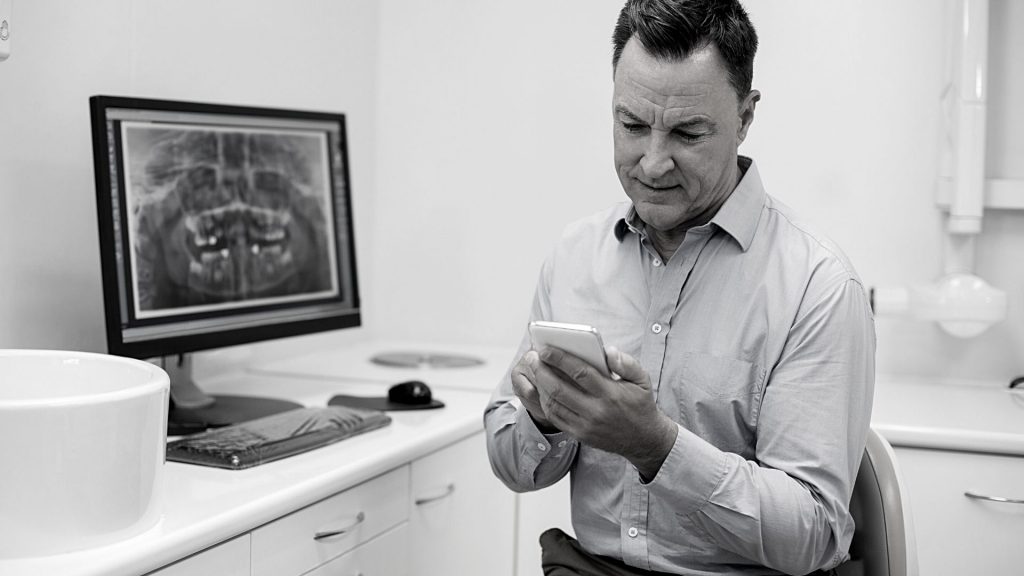“There’s an app for that” seems to be a common refrain for, well, everything these days.
From helping us with day-to-day things like budgeting and fitness to staying in touch with friends and professional networking, there really is an app for everything now.
And as a dentist, you are probably seeing the rise of apps targeted towards you to assist with everything from reminding patients of their appointments to improving workflow and creating treatment plans.
However, when it comes to making use of these apps in a professional setting as a dentist, there is a lot more to consider than simply if you, personally, feel comfortable with the app.
Many willfully overlook the fact that Facebook shares our personal data with marketers, who in turn target ads at us – we know this is the tradeoff for the service being free to use. But as a medical practitioner, you have to take patient privacy and consent into consideration when using apps in your practice.
Keep reading to learn more about some of the key factors to take into consideration when trying to decide to use the apps.

Challenges To Consider When Using Apps
When making the determination of whether or not to use a new application as part of your dental practice, you’ll want to consider a few key aspects.
These include:
- What are the terms of the privacy policy or agreement for using the app?
- The security of smartphones, tablets, and other devices you will be using to implement this new app
- Patient consent regarding the storage of data
- How you will incorporate data from the app into patient health records
Let’s have a closer look at each of these areas.
What Does The Privacy Policy Say?
How many times have you skimmed or outright ignored the privacy policy or user agreement when installing a new application on your personal device?
We’ve all done it, and if it’s a personal device we may consider this to be fairly low stakes.
After all, everyone else is using this app, and we don’t want to be left out – how bad can it be?
These policies are full of “legalese” and may actually be designed to encourage you to just skim or skip entirely.
When using an app in your practice, however, you can’t afford to overlook this part.
Some of the key factors to consider when reviewing the terms of an app include:
- Where is the data stored: if it is stored outside of Canada, what are the privacy laws like in the country of storage? It’s important to remember “the cloud is just someone else’s computer”, and where that computer is located is important.
- How much information on your device can the app access: this could be a concern if other patient data, such as contact information or payment information, is stored on the same device.
- Are third parties being granted to access from the app?
Furthermore, if someone you know is recommending the app for your use, it doesn’t always mean they have done full research on the app; it’s best to do your own deep dive into these services, especially if the person recommending it is receiving some sort of referral incentive for enticing other users to sign up.
One tip to determine if there are any red flags with a given app is to Google search “Is ‘Name of App’ HIPPA compliant?”
Although HIPPA – the Health Insurance Portability and Accountability Act – is US legislation, this can be a good starting point to determine if any given app is safe to use.
Security Of Smartphones, Tablets, And Other Devices
Generally speaking, if you are using an app in your practice, it is installed on some sort of portable device, such as tablet or smartphone.
While you may have robust antivirus and anti-malware protection on the computers you are using in your dental office, folks often don’t give the same consideration to other devices.
Unfortunately, because these sorts of portable devices are generally designed for “function first”, security and privacy are often considered an afterthought.
For any app or device on which you will be collecting patient information, it’s important to consider all aspects of security.
Things to consider when thinking of device security include:
- Physical security of the devices – are they locked up when not in use?
- Access to the device, including setting up two-factor authentication, so if they do get into the wrong hands, any data stored on the device isn’t accessible
- Data encryption
- Network protection
Patient Consent
If you do decide to use an app in your practice, you need to consider patient consent, especially if their data is stored on the “cloud” or in a third party location.
Even if the data is anonymized, some people may be uncomfortable with their dental records being stored on a server, especially if information is accessible by a third party or stored in a country without the same privacy regulations as we have in Canada.
Should you decide to use an app in your practice, you will need to determine the best way of getting informed consent from your patients, especially if data is stored off-site.
Incorporation Of App Data To Health Records
The purpose of using an app is generally to help make things easier.
However, if you’re using an app to collect patient information, or to help you create a treatment plan, this information will eventually need to be transferred into your patient’s health records.
You’ll want to look at how the app incorporates with your existing records.
If there isn’t a seamless and secure means of doing this, then you need to ask yourself if the data entry required to do this might just create more work?
Is the time truly saved, or is the improved patient experience the app promises worth the extra work of having to input the information into the patient files later on?
Ready To Learn More About IT Security For Your Dental Practice? Contact me today.
I know there are a lot of pressures on you as a dentist and I understand the use of tools like apps in your practice can be appealing to help you save time and improve patient experience.
But you might have questions about the security of these apps, and if they really are the great solutions they seem to be? Or could there be hidden costs in the way of risk of exposure for patient data?
I can help you figure this out. Additionally, Alexio Healthcare Cyberschool can help you learn all about how to protect your practice from cyber threats.

